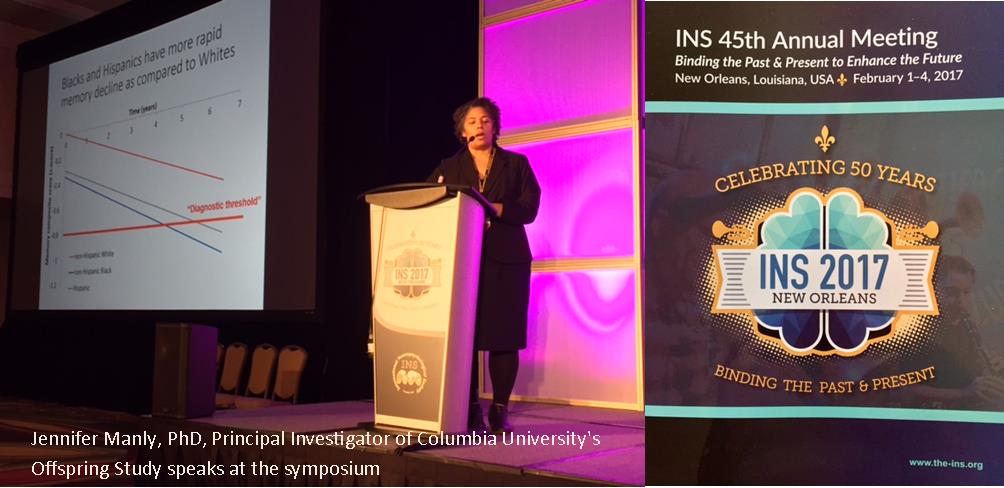Will I Be Next? was featured at an important symposium entitled “The Next Generation: A Look at Cohort Studies of People at Risk for Alzheimer’s Disease” at the 45th annual conference of the International Neuropsychological Society in New Orleans on February 3rd. Producer Therese Barry-Tanner kicked of the symposium with a short work-in-progress clip of the documentary providing more than 200 researchers who attended this session with a different perspective of the research process – that of the human research subjects. From there, the symposium transitioned to a discussion of several longitudinal cohort studies including their seminal findings and future directions. Cohorts included:
- The WRAP study (University of Wisconsin, PI: Sterling Johnson, PhD)
- The Adult Children Study (Washington University, PI: John Morris MD; presented by Jason Hassenstab, PhD)
- The BIOCARD Study (Johns Hopkins University, PI: Marilyn Albert; presented by Anja Soldan, PhD)
- The Offspring Study (Columbia University, PI: Jennifer Manly, PhD)
- The Vanderbilt Memory and Aging Project (Vanderbilt University Medical Center, PI: Angela Jefferson, PhD)
The key findings from these studies focused on neuropsychological and biomarker changes in people at risk for Alzheimer’s disease, characteristics that may pose resilience against cognitive decline and implications for participant selection in future trials for Alzheimer’s prevention.
In his introduction to the clip, WRAP PI Sterling Johnson said that one way the film is important to scientists is that it helps researchers understand what participants go through. Following the symposium, Anja Soldan of John Hopkins said, “This is a very moving film that tells the human side of what’s it’s like to have lived with and cared for a loved one with Alzheimer’s disease. It portrays, in a very intimate way, both the suffering, strength, and resilience of adults who have cared for a parent with Alzheimer’s and shows how this experience has motivated them to become active participants in the scientific quest for finding a cure for the disease. Much progress in our understanding of the development of Alzheimer’s disease rests on the participation of these individuals in major research studies.”
–Therese Barry-Tanner, Lead Producer
